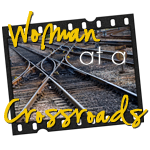My friend Francine invited me to come along with her and her brother to Fredericksburg for the regional premiere of the Spielberg-Hanks World War II collaboration called The Pacific. Yes, you guessed it, it is exactly the same format as their Band of Brothers. There are a lot of reasons that I love Steven Spielberg, not the least of which is that he has often brought World War II to the screen, dusting off old themes and characters and making them alive for younger generations. He has an affinity for it because of his father, who flew the Hump during the war, just as my father did. But, like me, he seems to have gravitated toward reflecting on the European theatre, delving less often into the Pacific. Empire of the Sun being an exception, of course, but that was less about American soldiers in combat than viewing the atrocities of the Japanese from Anglo-eyes. But, I knew from reading interviews that he always wanted to look to the Pacific someday to honor his father. And, it seems, at last he has done it; granted after Clint Eastwood beat him there, but it's a big war and there are many stories to tell, so there is room for more than one Hollywood heavyweight. Anyway, all of this as a long introduction to how I spent my day and where my thoughts took me yesterday: which is to my father.
I have mentioned him before, so some of this will be repetitive probably, but I have not dwelled on him in detail largely because he passed away from cancer when both my daughters were very young. Marissa does not remember him, Kelsey only vaguely recalled him. Yet, his influence was heavily felt in their lives, because it was in mine and how I conducted myself. Once, in melodramatic fashion, I announced that Hitler continues to claim victims, meaning myself. I was just being a Drama Queen, but it is completely true that the aftermath of World War II is a constant in all our lives, to an extent I think most people my daughter's age don't understand. The political landscape of the world was forever changed in the rubble of the war. From larger global divides and politics, to the small, individual stories. Stories of children of holocaust survivors who often find themselves with serious mental health issues as a result of their parents' experiences, for example. Which is why I am so grateful to people like Eastwood, Hanks and Spielberg for reminding us of the sacrifices made by men like my father. I believe we need to understand where we've been before we can really understand where we are.
But, this is not about Graham Bleiler, the uneven parent. This is really about the man I never knew. I always felt as though I never got the best part of my parent, the war did (hence my little dramatic statement). This was reinforced by Mom's comments throughout my life that he was "not the man she married". Yet, I never completely understood the level of the trauma he carried inside until I read Flags of Our Fathers by James Bradley only a few years ago. For some reason, although I knew my father was haunted by his experiences during the war, right onto his death bed, I never really could empathize with him the way that I wish I had. Reading about the traumas of the survivors of Iwo Jima helped me to understand the depth of the PTSD many of them came home with in the context of the times, which did not support mental health issues. They came back to a war weary culture that wanted to sweep it all away and get on with things. Even veterans didn't quite understand it in themselves; thinking it was a weakness. My father's co-pilot told me the story of his brother who ended up homeless in San Francisco, shaking his head sadly at the lost soul who never recovered from the war, but did so in a way that conveyed that he didn't quite understand why his brother couldn't shake it off. For many, like my father, they just buried it, where it festered, like hot coals in a dying fire, ready to erupt up again if poked.
Dad didn't participate in ground combat. He never had to look a man in the eyes from the end of his bayonet. The ghosts that haunted him were from the night raids on Toyko. By that time, my father was piloting one of the B-29 Super Fortresses, a plane they called Devilish Snooks, as part of the 40th Bombardment Group. Many of you know the story from a textbook point of view. In the waning days of the war, the United States was trying to pound Japan into submission to avoid having to invade it, which they knew would be costly in men, material and moral. The Japanese would have fought to the death. So, the gloves came off. My father's group was ordered on low flying night raids on Toyko and Osaka. The reasons to fly in so low were strategic and highly successful. The results, at least for my father, lasted a lifetime. Late in his life, one late night when he had a few too many, he opened up about those raids. He could still vividly recall the smell of burning flesh, and he knew they were targeting civilians, not just industrial areas. He knew those were women and children he was dropping payload on, and it never left him. Yet, he knew his orders, he knew his mission, and he fulfilled it. He understood the larger reasoning for it, but he never completely reconciled that intellectual knowledge with the immorality he felt for doing his duty. When he was sick from the chemotherapy in the week before he died, he thought he saw those women and children coming for him to punish him for what he did. It was gut wrenching to witness, and I prayed to those souls to accept my father and forgive him. He was a victim of the same war, it just took longer to claim him.
So, I pondered my father's actions and life yesterday as we meandered through the museum in Fredericksburg, and I think of the soldiers who serve our country now and what they have seen and will have to live with and how that will impact their children and their children's children. And I despaired a little bit at the human condition that causes us to have to send young people out to do and witness such horrible things, while at the same time being thankful that they are willing to do it. In the end analysis, I never said thank you to my father for his service. I should have.
Thank you, Dad.
Sunday, March 7, 2010
Subscribe to:
Post Comments (Atom)



.jpeg)










No comments:
Post a Comment